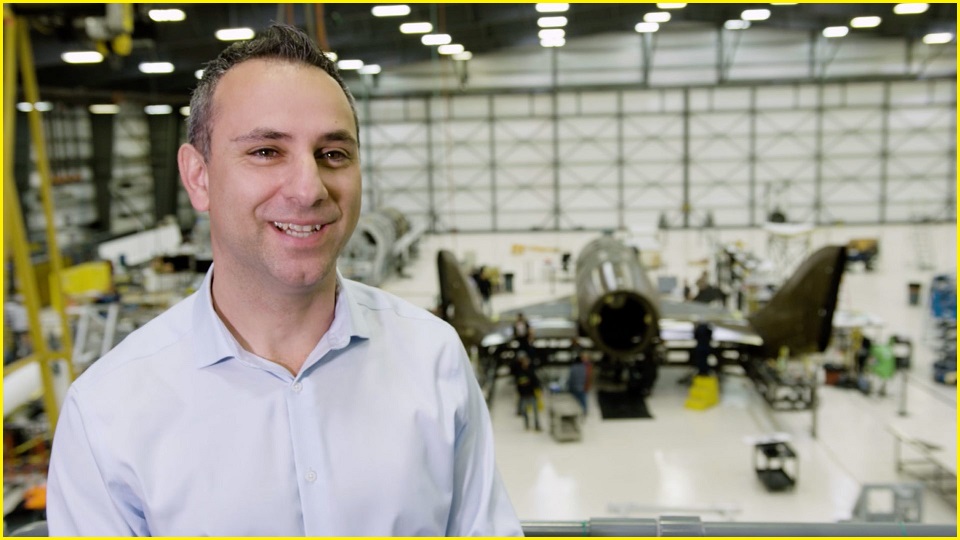Even as private-sector space flight venture SpaceX made history by successfully launching four astronauts into space for the first time, Australia’s emerging space industry was blasting off in a different way as Virgin Galactic’s Australian-born COO returned to head the Australian Space Agency (ASA).
The appointment of private space-travel pioneer Enrico Palermo – who was born and educated in Western Australia but has been building spaceships in the UK and California’s Mojave Desert for two decades – was significant enough to attract the involvement of Prime Minister Scott Morrison, whose government has lit a fire under Australia’s emerging space industry.
Palermo’s appointment – which will see him commence at the ASA’s Adelaide headquarters in January – would “rocket Australia toward our goal of becoming a major player in the international space industry, while providing benefits across our economy,” Morrison said in announcing the successor to founding agency head Dr Megan Clark.
Morrison’s government has set its sights on tripling the size of Australia’s space sector, creating $12b in economic benefit and creating up to 20,000 new jobs.
Since the ASA was launched in 2018, a series of funding commitments has given the agency a home, a $6m mission control centre, and a $150m deal with NASA that will see Australian space-industry specialists engaging with the US Moon to Mars space program.
Adding the expertise and guidance of a globally significant industry player will help the industry maintain its growth trajectory as “Mr Palermo’s skill set reflects the reality of the space sector,” Karen Andrews, Minister for Industry, Science and Technology.
The sector “is about so much more than just research or launch,” she said. “The economic benefits of space exploration are vast, with highly skilled jobs right along the supply chain” in areas such as manufacturing, robotics, engineering, and resources.
An explosion of interest
As illustrated by a flurry of private sector-led, space-related ventures in recent years –including the recent successes of the Elon Musk-led SpaceX venture as well as planned missions to Venus, Mars, the Moon, and distant asteroids – space-related ventures have captured the public imagination as well as the attention of commercial interests.
Although it was established late by global standards, Australia’s space program is providing a welcome centre of gravity for the many related disciplines where Australian universities have long been producing skilled graduates.
“The government has put quite a bit of money and strength to bootstrap this industry, so we see a lot of engineers taking risk and really going into the startup world,” said Stephane Marouani, country manager with Mathworks – whose MATLAB engineering platform is standard issue at NASA, the European Space Agency and Australian startups such as Dawn Aerospace, Southern Launch, and Gilmour Space Technologies.
“They are using the government baseline to get some work from NASA,” he told Information Age, “but also from the defence industry in Australia… they have been working in defence research and are making the leap into the commercial world.”
Engineers from telecommunications, defence, aeronautics, and other disciplines were joining graduates of space-focused programs in building up a pipeline of skills that is only set to get bigger as the ASA’s ecosystem continues to grow.
“Both the Australian Government and a developing industrial ecosystem are investing significant capital in the space sector,” said Professor Roberto Sabatini, director of RMIT University’s Autonomous and Intelligent Aerospace Systems Lab, “and developing solid business plans with a growing ambition to deliver high value space products and services both nationally and internationally.”
RMIT University’s Bachelor of Space Science is one of numerous university programs fine-tuning long-established engineering disciplines for the challenges and opportunities that the space industry presents.
“I’m frequently being approached by potential employers,” Sabatini said, “looking for aerospace engineering students with space systems design skills.”
Those skills are out there, Marouani said, calling the idea of a space skills deficit “a myth”.
“They are coming to understand that it’s not just about building rockets or sending things into space,” he explained. “As we see more and more through the startups, and also through our larger customers, it’s more a convergence of different matters and subjects.”
With private-sector successes like SpaceX’s launch, he added, “the cost of entry has lowered quite significantly – and they no longer have to pour a billion dollars’ worth of engineering and prototyping before being able to prove their technologies.”










